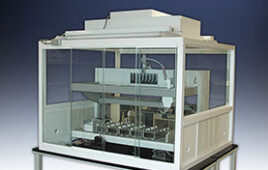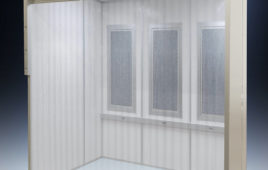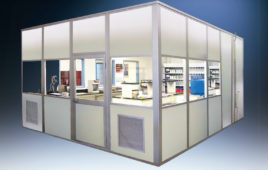As each year comes to a close, I like to take a look back at the stories that resonated most with Controlled Environments readers throughout the year.
Donald Trump, considered by many to be the underdog in the 2016 presidential election, made numerous promises during his campaign to “drain the swamp” and slim down the federal government. “The First Five Days” discussed the president’s changes to the EPA and USDA, along with science-related additions to his Cabinet, in the earliest days of his term.
Cleanrooms have played a vital role in forensic science. “Cleanrooms Unlock Secrets of the Past” described how ancient Egyptian mummies were examined in a cleanroom to determine their ancestry. Cleanrooms were also used to identify the bodies dubbed “Miranda Eve” and “Kennewick Man,” and to identify the remains of Richard III, an English king missing for centuries who was eventually exhumed from a modern-day parking lot.
Dr. Mildred Dresselhaus, known for her research involving carbon nanotubes and graphene, died in February at 86. Dresselhaus’s research was the precursor to buckyballs and nanotubes. Dresselhaus was also featured in a GE commercial about researchers being treated the same as celebrities. Readers clicked on “Nanotech World Remembers ‘Queen of Carbon Science’” to learn more about this remarkable scientist.
One story dominated our news coverage — the federal trials of Barry Cadden and Glenn Chin, the former president and pharmacist, respectively, of the New England Compounding Center. The NECC has been blamed for a 2012 meningitis outbreak, which killed 64 people and sickened over 700 others. Cadden’s trial began in January (“Pharmacists from Fatal Meningitis Outbreak Facing Trial”), when he was charged with 25 counts of second-degree murder as well as racketeering charges. Former employees testified that the NECC’s cleanroom suffered from lax business practices (“Meningitis Trial Testimony Describes Cleanroom’s ‘Locker Room’ Atmosphere”), and that prescriptions were filled using false names. Further testimony from the NECC’s quality control agent described bugs in the cleanroom (“Old Mattresses, Mold, and Mickey Mouse: Meningitis Trial Continues”). A CDC doctor said that, in his experience, the only thing that rivaled the 2012 meningitis outbreak was the Ebola epidemic (“CDC Doc: Meningitis Outbreak Rivaled Ebola Epidemic”). Cadden was eventually acquitted of the murder charges, but was later sentenced to nine years in prison after being convicted of racketeering and fraud in June.
Glenn Chin, the supervisory pharmacist for the NECC’s cleanroom, went on trial in September (“Second Pharmacist from Meningitis Outbreak Faces Trial”). Like Cadden, Chin was also facing second-degree murder charges. A special agent from the U.S. Department of Defense introduced an email as evidence; the email stated that the defendant had ample warning that his company’s practices were dangerous (“Pharmacist’s Email: Cleanroom Practices ‘A Disaster Waiting to Happen’”). A QC stated that Chin sent her an expletive-laden reply when she emailed him about employees not reviewing the pharmacy’s SOPs (“Cleanroom QC Agent: Pharmacist Told Me to ‘[Expletive] Off’”). A verdict was reached on Oct. 25.




